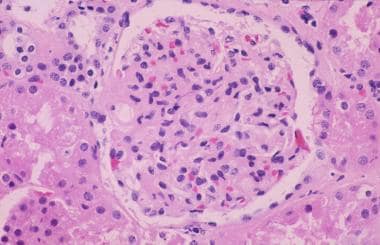Are men and women affected equally by age-related loss of kidney function?
No. They are affected differently. This is what Melsom, 2022 discovered in this paper described below. The researchers investigated sex differences in the loss of kidney function.
Why is this important?
CKD is more common in women, but more men receive renal replacement therapy (RRT; dialysis and/or a kidney transplant) for ESRF. This apparent contradiction is not well understood.
What did the study show?
In the Renal Iohexol Clearance Survey (RENIS) in northern Europe, 1837 persons (53% women, aged 50-62 years) were recruited. They were representative of the general population and without known diabetes, CKD, or cardiovascular disease.
Participants’ GFR was measured using something called plasma iohexol clearance in 2007-2009 (n=1627), 2013-2015 (n=1324), and 2018-2020 (n=1384). This is more accurate than a ‘normal GFR’ measurement based on blood creatinine level.
Women had a lower GFR than men at baseline, 90.0 versus 98.0 ml/min. The mean GFR change rate was -0.96 ml/min per year in women, and -1.20 in men.
Although the relationship between age and GFR was very close to linear in women, it was curvilinear in men, with steeper GFR slopes at older ages – as shown in the graphs below.

In conclusion, amongst healthy middle-aged and elderly individuals in the general population, age-related decline in GFR in women was slower than in men.
How does this affect you?
If you do not have CKD, and your GFR is being monitored (for some other non-CKD reason), your doctors should take your gender into account, when they compare GFRs over the years.
Summary diagram

Other information – age-related decline in renal function
The Baltimore Longitudinal Study of Aging provided some of the first data on within-person changes in renal function over time (Lindeman, 1985).
In a subsample of this cohort without renal disease, followed up to 23 years, GFR declined by a mean of −0.75 ml/min per year. Interestingly, 35% of individuals in this study did not experience a decline in renal function.
Other resource
Changes in ageing kidney – large and microscopic scale
Last Reviewed on 26 June 2024

